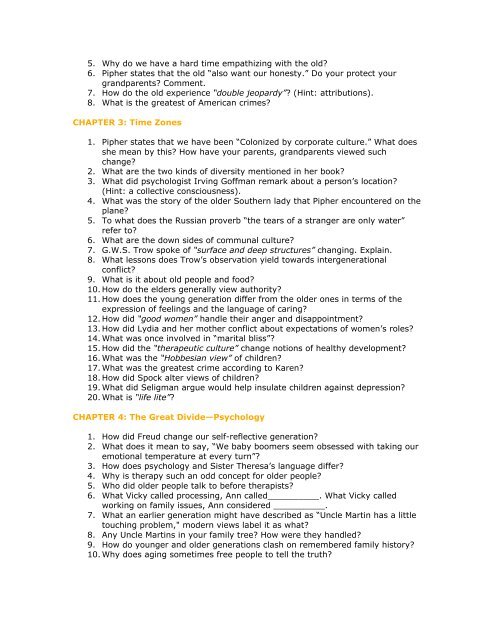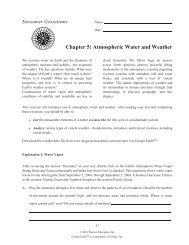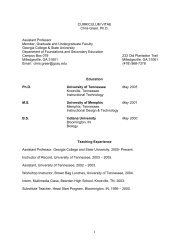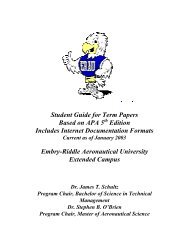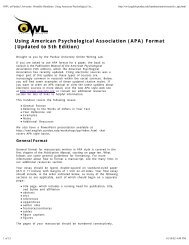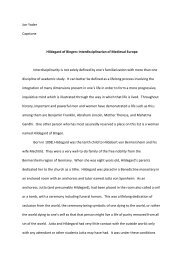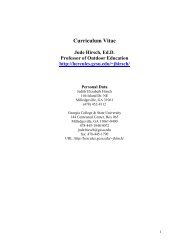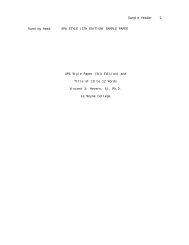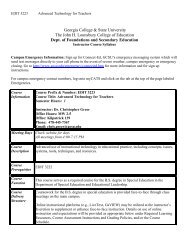study questions
study questions
study questions
- No tags were found...
Create successful ePaper yourself
Turn your PDF publications into a flip-book with our unique Google optimized e-Paper software.
5. Why do we have a hard time empathizing with the old?6. Pipher states that the old “also want our honesty.” Do your protect yourgrandparents? Comment.7. How do the old experience “double jeopardy”? (Hint: attributions).8. What is the greatest of American crimes?CHAPTER 3: Time Zones1. Pipher states that we have been “Colonized by corporate culture.” What doesshe mean by this? How have your parents, grandparents viewed suchchange?2. What are the two kinds of diversity mentioned in her book?3. What did psychologist Irving Goffman remark about a person’s location?(Hint: a collective consciousness).4. What was the story of the older Southern lady that Pipher encountered on theplane?5. To what does the Russian proverb “the tears of a stranger are only water”refer to?6. What are the down sides of communal culture?7. G.W.S. Trow spoke of “surface and deep structures” changing. Explain.8. What lessons does Trow’s observation yield towards intergenerationalconflict?9. What is it about old people and food?10. How do the elders generally view authority?11. How does the young generation differ from the older ones in terms of theexpression of feelings and the language of caring?12. How did “good women” handle their anger and disappointment?13. How did Lydia and her mother conflict about expectations of women’s roles?14. What was once involved in “marital bliss”?15. How did the “therapeutic culture” change notions of healthy development?16. What was the “Hobbesian view” of children?17. What was the greatest crime according to Karen?18. How did Spock alter views of children?19. What did Seligman argue would help insulate children against depression?20. What is “life lite”?CHAPTER 4: The Great Divide—Psychology1. How did Freud change our self-reflective generation?2. What does it mean to say, “We baby boomers seem obsessed with taking ouremotional temperature at every turn”?3. How does psychology and Sister Theresa’s language differ?4. Why is therapy such an odd concept for older people?5. Who did older people talk to before therapists?6. What Vicky called processing, Ann called__________. What Vicky calledworking on family issues, Ann considered __________.7. What an earlier generation might have described as “Uncle Martin has a littletouching problem," modern views label it as what?8. Any Uncle Martins in your family tree? How were they handled?9. How do younger and older generations clash on remembered family history?10. Why does aging sometimes free people to tell the truth?


